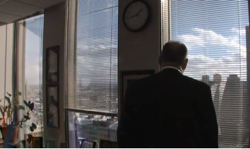2007 seems a world away from my life today, and many of the changes have come about because of the writing I started five years ago on the Storied Mind blog. Depression felt a lot more dominant then than it now does, and prospects for living as I hoped to a lot less bright. All […]
work
Judy’s Story of Depression and PTSD
In this post, Judy tells her compelling story of lifelong depression and PTSD as well as her gradual healing and recovery with the aid of innovative therapies such as hypnosis and EMDR. Background As is the case with many people who live with depression for a number of years, it’s wreaked havoc on my marriage […]
The Friends of Depression at Work
(Here’s an edited journal entry from early days of this blog when I was trying to survive depression at work.) I keep looking for a ray of humor in the ongoing torture of trying to work when depressed. This has not been easy. In fact, I’ve been falling into dark memory holes and getting a […]
A Helpful Documentary on Lawyers with Depression
A Terrible Melancholy is a documentary about lawyers with depression, but it’s relevant to anyone trying to understand more about the illness. Dan Lukasik, a lawyer who has lived with depression for the past ten years, produced the film to encourage others in his profession to seek help. The message is on target for anyone […]
Revisiting: Real Depressed Men Don’t Cry
This is an edited version of one of the first posts I wrote for Storied Mind. ………. I’m not sure where the following came from, but it turned up on my cyber doorstep recently. I guess some men have trouble living up to their fantasies: Ok, everybody knows depressed people have these outbursts of grief […]
The Labor and Life of Gardening
My wife keeps expanding and adding variety to the gardens at our house. For her, they’re a labor of love, rewarding and fulfilling for the work they require. But growing hundreds of different plants calls for constant attention. The basics demand hard labor. There are the piles of plant remains to be turned and sifted. […]





